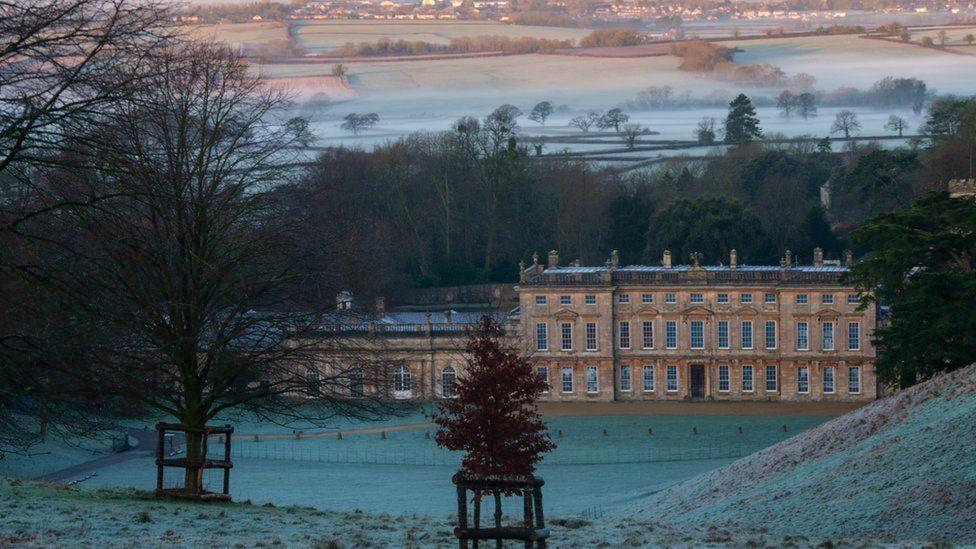National Trust to create more wildlife havens in Stroud
- Published
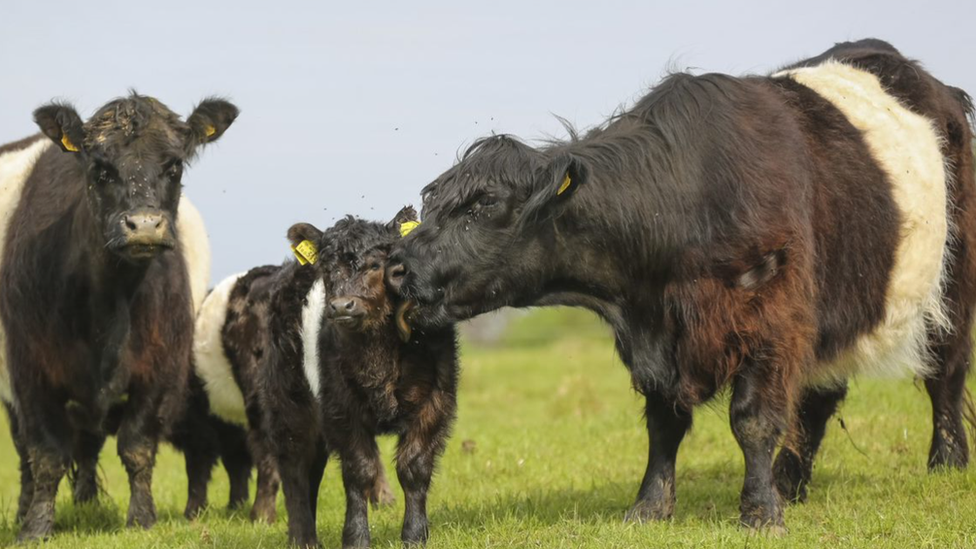
Belted Galloway cattle are experts at grazing steep slopes and devouring grasses many animals would find unpalatable
The National Trust is to create more wildlife havens in Gloucestershire in the next three years.
Its Stroud Landscape Project plans to boost wildlife and restore woodland across 320 hectares (791 acres).
A 100-strong herd of Belted Galloway cattle is being brought in to graze and manage grassland.
The scheme, which began in 2017, has already seen wildflower grasslands flourish and lost species, such as the large blue butterfly, reintroduced.
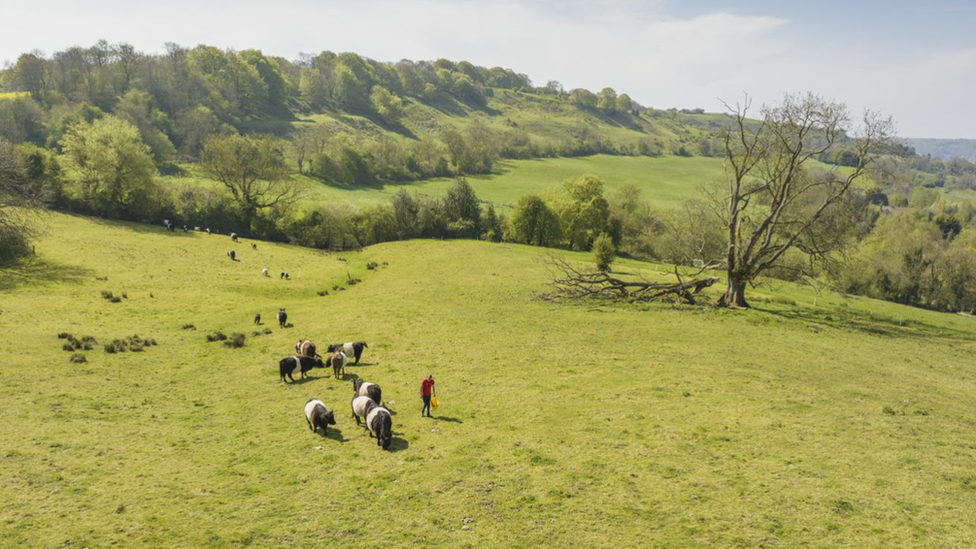
The Stroud Landscape Project is using methods including grazing and wildflower seeding to boost nature
Belted Galloways, know as "Belties", are experts at grazing steep slopes and devouring grasses many other animals would find less palatable.
Jennifer Gilbert, Cotswold landscape officer for Butterfly Conservation, said they played a vital role because they acted like nature's lawnmowers and fertilisers.
"A combination of the Stroud Landscape Project's conservation grazing herd of Belted Galloway cattle and practical habitat management led by our Gloucestershire branch of volunteers is ensuring the grassland at our Rough Back reserve stays in good condition and continues to support the more common and the rarest of inhabitants," she said.
The organisation said that thanks to the cattle's help, plants and herbs such as marjoram, thyme, vetches and rare orchids were thriving, along with a wide range of wildlife such as Duke of Burgundy butterflies and greater horseshoe bats.
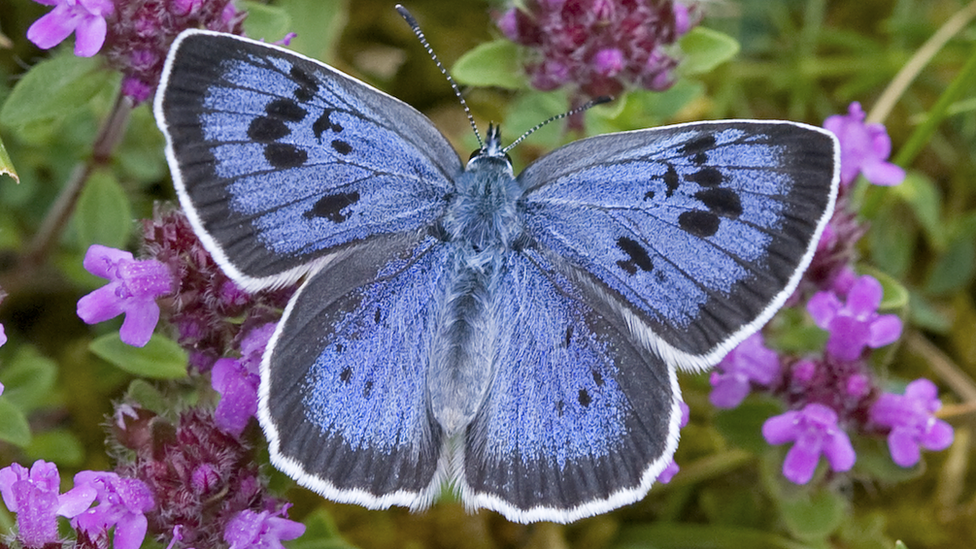
Large blue butterflies have made a successful return
As well as new wildlife havens, the National Trust is also planning to plant 1,140m (3,740ft) of new hedgerows in the autumn at Boundary Court and on the Ebworth estate.
At Woodchester Park, plans to accelerate the restoration of nearly 48 hectares (119 acres) of mainly former conifer plantations to species-rich grassland and native woodland are under way.
Targeted grazing, hay-cutting and wildflower seeding would all play their part, the National Trust said.
David Armstrong, Stroud Landscape Project delivery manager, said: "The challenge ahead is huge and complex, but the Stroud Landscape Project is confronting the climate and nature emergencies head-on.
"The solutions can be simple, and many are very much within our grasp - we need to create havens for wildlife that boost biodiversity."
The project is working with partners including private landowners and farmers, Gloucestershire Wildlife Trust, Natural England, Butterfly Conservation and Cotswold National Landscape.

Follow BBC West on Facebook, external, Twitter, external and Instagram, external. Send your story ideas to: bristol@bbc.co.uk , external
- Published25 August 2022
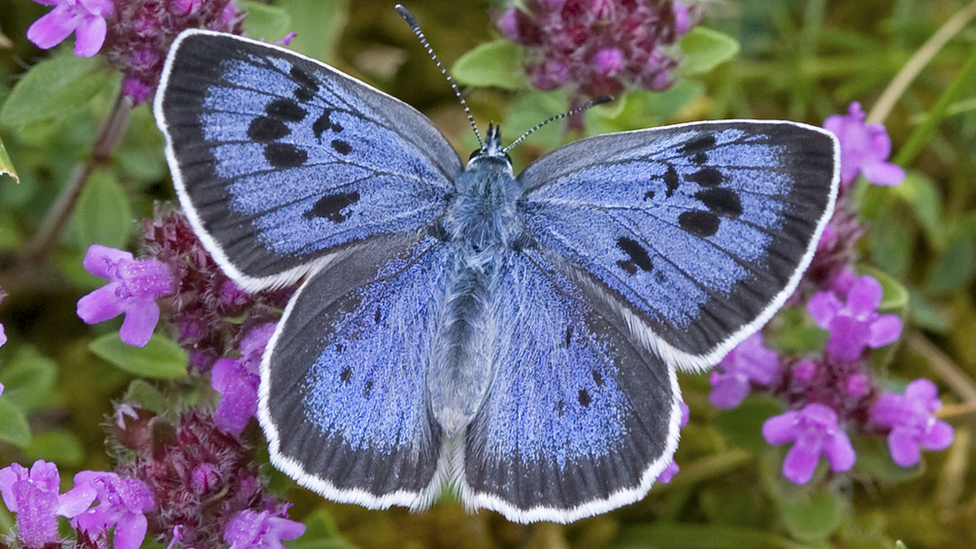
- Published19 July 2022
